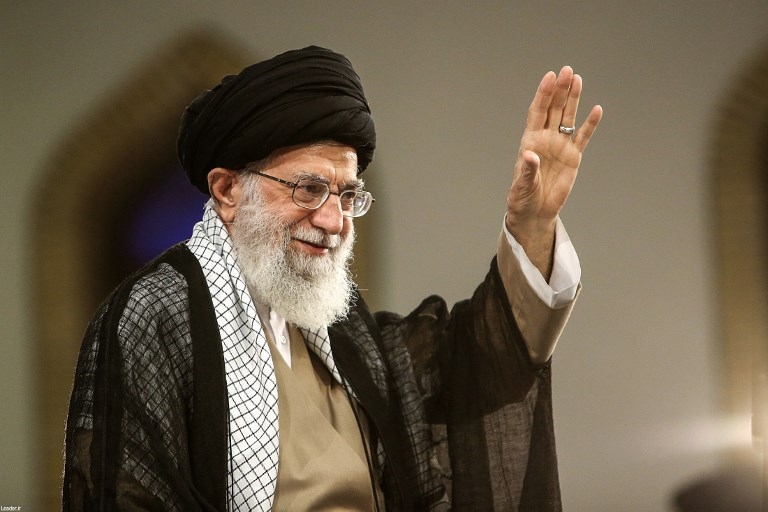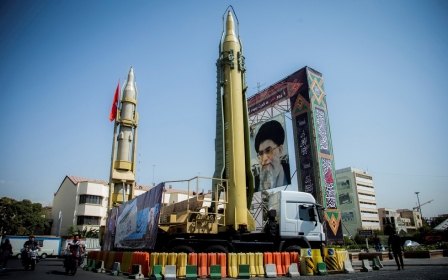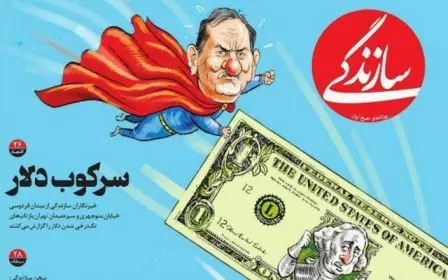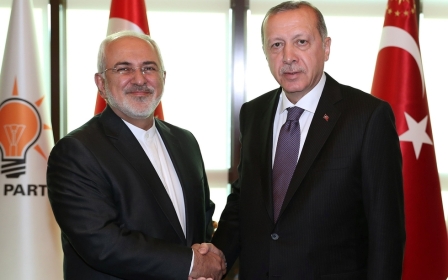Khamenei accuses US and Israel of waging media war to 'infect' Iranian minds

Iranian Supreme Leader Ayatollah Ali Khamenei has accused the United States and Israel of waging a "media war" to create "anxiety" and "pessimism" among the Iranian people. Khamenei's comments, which were reported on state television on Thursday, come as Iran struggles with the reimposition of American sanctions.
The rial currency has lost about two-thirds of its value this year under the threat of the sanctions, reimposed by US President Donald Trump last month after he withdrew Washington from a 2015 nuclear agreement between Tehran and world powers.
The cost of living has also soared, sparking sporadic demonstrations against profiteering and corruption, with many protesters chanting anti-government slogans.
"Today, [Iran's] Islamic system faces an all-out economic war that is carefully guided by a war room, but along with this war, there is a major media and propaganda warfare that is often neglected," Khamenei told members of a senior clerical body.
Iranian officials have blamed popular messaging apps and social media campaigns - which they say are organised overseas - for the protests against the flagging economy that erupted in December and which have spread to more than 80 cities and towns, resulting in 25 deaths.
"The goal of this media war is to create anxiety... and pessimism among people towards each other and the authorities, and to exaggerate economic problems in the minds of the public," Khamenei is reported as saying.
"Based on our intelligence, the US and Zionist spy agencies, financed by the super-rich of our region, has set up an organisation for this media war and are seriously planning and trying to infect the advertising space and the minds in our community," he said.
The currency began to slump in December when Washington indicated that it would withdraw from the 2015 nuclear deal.
That decline accelerated in May after US President Donald Trump made a formal announcement that the US was pulling out of the deal with world powers and reimposing economic sanctions on Iran.
Saudi Arabia, Iran's main regional rival, and the United Arab Emirates have backed Trump’s decision to reimpose sanctions on Tehran, reflecting the wealthy oil exporters' concerns about Iran’s ballistic missile programme and support for militant groups.
Trump said on Wednesday that he remained open to the possibility of talks between Washington and Tehran. However, the American president added: "Iran is in turmoil right now. They're in total turmoil."
"Now they are just worrying about their own survival as a country," he told reporters, without offering any evidence.
New MEE newsletter: Jerusalem Dispatch
Sign up to get the latest insights and analysis on Israel-Palestine, alongside Turkey Unpacked and other MEE newsletters
Middle East Eye delivers independent and unrivalled coverage and analysis of the Middle East, North Africa and beyond. To learn more about republishing this content and the associated fees, please fill out this form. More about MEE can be found here.




